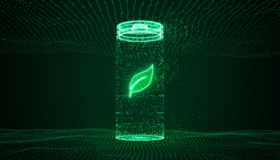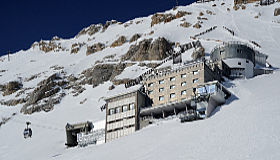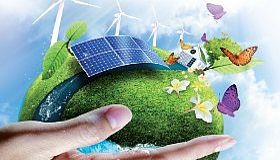
Project archive
Please find here a selection of completed projects which BayFOR succesfully supported in the funding application process or in which we also participated as a partner organisation (please choose the filter option „With BayFOR“). The EU projects presented on this website have received funding from the European Commission.
You can find the list of ongoing projects here.
-
ADVOS
One of the most feared complications in intensive care is the simultaneous failure of several vital organs. If three such organs fail at the same time, only one in five patient survives. The EU project ADVOS (ADVanced Organ Support) provides the world's first device for the combined support of liver, lung and kidney.
-
AI D
Eye diseases such as age-related or inherited macular degenerations are often incurable and lead to progressive loss of vision in the central visual field. In order to test new therapies, more sensitive examination methods are required in order to be able to assess the effectiveness of these therapies. This is precisely what the EU project “AI D” wants to push forward.
-
ALIGNER
Artificial intelligence (AI) technologies are posing ever-increasing challenges for law enforcement agencies (LEAs). This is because they not only facilitate 'traditional' crimes, but also enable new forms of crime. At the same time, however, they also offer new opportunities in law enforcement. The EU project ALIGNER aims to analyse the opportunities and risks of AI in law enforcement.
-
AlpBC
The alpine region is home to unique natural and cultural treasures, which have evolved over the centuries through adaption to local and climatic conditions and regional expertise. The aim of the European funded AlpBC project is to preserve and advance the legacy of the diverse alpine building culture.
-
ARDIA-Net
There is currently no funding programme for research, development and innovation that is tailored specifically to the needs of the regions in the macroregion of the Alpine space, supporting the implementation of their specific objectives while at the same time facilitating cross-border cooperation. The EU project ARDIA-Net has now set itself the goal of creating such an R&I funding programme with a focus on the issues of the circular bioeconomy and health economy that brings together companies (SMEs), universities and their research partners in the Alpine space.
-
ARSINOE
Extreme weather events such as the floods in the Ahr Valley in the summer of 2021, but also recent droughts, have show that climate change has arrived in Europe. Adapting to its consequences is one of the most important challenges for the future. The EU project ARSINOE will develop innovative climate resilience strategies and tools.
-
BIONIC
Musculoskeletal disorders (MSDs) top the statistics in Europe as a cause of illness-related absence from work. They not only bring about high direct expenditure in terms of treatment costs, but also high indirect costs through compensation for non-productive time (Source: German Federal Institute for Occupational Safety and Health). The BIONIC project has tasked itself with enabling MSD sufferers to enjoy active, long-term participation in the working life.
-
CAMbrella
CAMbrella is a pan-European research network for complementary and alternative medicine (CAM). 16 partner institutions from 12 european countries are working together to develop a roadmap for future European research in CAM that is appropriate for the health care needs of European citizens and acceptable to the EU Parliament as well as their national research funders and health care providers.
-
CARAMEL
Modern autonomous vehicle technology is becoming increasingly advanced through connectivity and Artificial Intelligence. At the same time, cybersecurity is becoming more important in this area. Cyber attacks on autonomous vehicles can, in the worst case, cost lives. The EU CARAMEL project develops cybersecurity solutions for the latest generation of vehicles.
-
CarBatteryReFactory
There are more and more electric vehicles on European roads. As a result, the number of old used electric car batteries is also growing. So far, there has been a lack of economical solutions for their reuse. FENECON GmbH now wants to build container storage systems from them.
-
CC-Driver
Crime on the Internet is changing and taking on new forms. A sophisticated break into IT systems is often not necessary. In addition, the emergence of the Internet of Things (IoT) is greatly increasing the target area of digital infrastructures. Cybercriminals, some of whom are young people, are taking advantage of these technological changes. Younger adults and adolescents with IT skills in particular are seeing an increasing incentive to make their digital skills available for criminal activity.
-
Chemlab II
Germany is facing a shortage of skilled workers in many areas of industry, including the chemistry sector. The situation is no better in other European countries. The EU Chemlab II project, sponsored by the EU lifelong learning programme ‘Leonardo Da Vinci - Transfer of Innovation’, is seeking to rectify this situation.
-
Circular Flooring
End-of-life flexible PVC floor coverings potentially contain ‘legacy plasticizers’ which may no longer be used today for reasons of consumer protection and which in the meantime have been replaced in the EU by safer alternatives. State-of-the-art recycling of such flooring with recovery of PVC in virgin-like quality therefore requires a technically sophisticated separation of these ‘legacy plasticizers’. The EU project Circular Flooring will meet this challenge.
-
CIRCULAR FoodPack
CIRCULAR FoodPack aims to facilitate the circular use of plastic packaging, addressing the most sensitive product category: Food packaging.
-
CIVITAS ECCENTRIC
Like city centres, suburban districts increasingly suffer from problems such as huge influxes of population and rising traffic volumes. The EU project CIVITAS ECCENTRIC aims to develop and implement innovative solutions in the areas of urban mobility and goods transport.
-
CIVITAS Handshake
Cities like Amsterdam, Copenhagen, or Munich have been working for decades on increasing the share of bicycle traffic in their city. In the Danish capital, 62% of working residents meanwhile even travel by bike to work. What exactly makes the bicycle so appealing as a form of transportation in these cities? The EU project CIVITAS Handshake is examining this question in order to share the findings with other European cities.
-
CLIMB
Funded under the Seventh Framework Programme (FP7) of the European Commission, the environmental project CLIMB investigates the impacts of climate induced change on the hydrology and the management of water resources in the Mediterranean region (Southern Europe, North Africa, Near and Middle East).
-
COEMS
One of the most critical points in the development of embedded systems with multi-core microcontrollers is the testing and troubleshooting phase. In the EU project COEMS, an international team is developing a monitoring process that does not affect the current application and allows observation for any length of time.
-
DAIS
Edge computing refers to decentralised information processing on the "edge" of a network, as opposed to centralised processing in the data centre of a cloud. Edge devices are expected to become increasingly intelligent, energy-efficient and powerful in order to be able to assume increasingly complex tasks locally. This is achieved by shifting complex artificial intelligence (AI) algorithms as well as machine learning algorithms from the cloud to the edge and developing a new type of "edge intelligence".
-
Danube Sediment
The transport of sediments is a natural process in running waters. Sediments are particles suspended in the water and coarse material on the riverbed. During the past decades and centuries, river engineering measures have drastically changed the natural sediment dynamics in the Danube and its tributaries. These changes in sediment transport can have adverse effects on people and the environment. The European DanubeSediment project seeks to understand these changes and recommend measure to improve the sediment balance.
-
DanuP-2-Gas
The Danube region holds enormous potential for sustainable generation and storage of renewable energy. So far, however, this region has been heavily dependent on energy imports, while energy efficiency and diversity and the share of renewable energies are low. The EU project DanuP-2-Gas aims to change this and develop renewable energy generation and storage strategies in the Danube region.
-
DeLiver
Around 10000 people are waiting for a lifesaving organ donation in Germany. According to the Deutsche Stiftung Organtransplantation (DSO), only one third can be helped per year, with almost 1000 people dying. The reason: There are too few donor organs. This makes the rapid and secure transportation of suitable donor organs between transplant centres even more important.
-
DORT MuM
Only 15 percent of innovative start-ups are founded or co-founded by women – only 6 percent, in turn, have exclusively female start-up teams. That is why the European Commission has launched the 'Women TechEU' initiative as part of the 'European Innovation Ecosystem' to promote support for deep tech start-ups led by women. Development of a new device for high-precision distance measurement in space applications.
-
DrapeBot
Lightweight, stable and safe – these are the requirements for materials in aerospace, automotive manufacturing and shipbuilding. Carbon fibre-reinforced plastics (CFRP) are therefore on trend in lightweight construction as they meet precisely these requirements. However, their production has not yet been fully automated, making it expensive. The EU project DrapeBot aims to revolutionise the "Draping" manufacturing process by developing an agile and efficient human-robot cooperation.
-
DRIVE
With 96 million affected every year, dengue fever is the most common mosquito-borne viral disease in the world. The number of new cases has more than sextupled between 1990 and 2015 according to information from the World Health Organisation (WHO), and there is currently no effective vaccine available. The Eurostars project DRIVE seeks to provide a toolbox for developing a new vaccine candidate against dengue fever that will serve as proof of concept.
-
ECOPOTENTIAL
Functioning ecosystems are the basis of human life. Particularly species-rich, precious or beautiful areas are therefore placed under special protection to safeguard them from degradation. Changes occur nevertheless, due to climate change, pollution, human disturbance, invasive species and other factors.
-
EIT RawMaterials
Since 2015, the European Institute of Innovation and Technology (EIT) has invested €400 million in developing a Europe-wide Knowledge and Innovation Community (KIC) over a seven-year period to pool innovation-oriented, cutting-edge research on the subject of raw material supply and security.
-
ESIT
ESIT is an Innovative Training Network (ITN) in the field of tinnitus research, that is primarily aimed at training young scientists. The purpose of this ITN is to improve existing treatment paradigms, to implement new research methods, to carry out initial genetic studies on tinnitus and to develop the largest pan-European tinnitus database, which will make it possible to establish innovative solutions for personalised tinnitus treatment.
-
ExaHyPE
Computer-based simulations drive progress in the field of science. In addition to theory and experiments, simulations have long since been crucial for acquiring knowledge and insight. Supercomputers allow for the computation of increasingly complex and precise models.
-
FEMAGREE
Equality between women and men is one of the EU's overriding policy objectives. The FEMAGREE project aims to identify which other obstacles are faced by women in agriculture in gaining financial independence through the founding of a new branch of business, which existing support measures are useful and where there are still gaps in the support system.
-
FIThydro
Hydroelectric power has great potential as a renewable energy source and is a real alternative to fossil fuels: it is highly efficient and reliable, cheap and financially profitable, causes minimal carbon emissions and has the necessary technical maturity and a long life cycle. The goal of the FIThydro project is to undertake further development of this method of electricity generation.
-
GeoMol
The alpine foreland basins encompass a wide variety of natural resources and possible reservoirs deep underground, so-called geo-potentials, which are becoming more and more important in light of the energy turnaround. The more than 5000 m deep ‘Molasse’ basins offer a huge potential for the use of environmentally friendly technologies, such as geothermal energy.
-
GLOPACK
From shrink-wrapped cucumbers to double-wrapped sweets – food packaging is a major factor in the life cycle assessment of a product. The EU project GLOPACK has recognised this and is developing innovative solutions to avoid or reuse food waste and packaging waste.
-
GRETA
The Alps are a popular travel destination. However, growing numbers of visitors mean the region faces rising energy demand and higher carbon emissions. Therefore the goal of the Interreg project GRETA is to improve the sustainable use of near-surface geothermal energy in the Alpine region.
-
H2Engine
The combustion engine is the most widely used propulsion system for vehicles, construction machinery, agricultural machinery, and even ships. It has proven difficult to replace, especially for heavy-duty transport. However, 23 percent of global CO2 emissions are caused by the combustion of fossil fuels in engines. KEYOU from Munich wants to operate combustion engines with hydrogen.
-
HESTIA
According to the Federal Statistical Office, there were some 137,000 reported cases of child endangerment through violence, abuse or neglect in 2016 in Germany alone. Effective child protection should be in place to help these children. How well are children protected in different Western European countries? What lessons can be learned? What can we build on? The European research project HESTIA has been set up to answer these questions.
-
HaptiVisT
To perform complex operations without making mistakes, surgeons must undergo extensive theoretical and practical training. Funded by the German Federal Ministry of Education and Research (BMBF), the HaptiVisT project is developing a haptic-visual training system allowing surgeons to practise operations with varying levels of difficulty in a game environment.
-
HarWin
The ever-growing impact of climate change and the shortage of resources show a significant need for action, especially when it comes to energy and material consumption in building and utilization of buildings in the next few decades. Windows and facades play a major role in this context. By using innovative polymer glass composite materials and the requisite process technologies, it is possible to lower weight, energy consumption and costs considerably during production.
-
home and care
According to a study from the Bertelsmann Stiftung, the risk of poverty for children with single parents has increased strikingly, as single mothers and fathers are rarely able to work full-time due to a lack of care facilities. Healthcare and nursing jobs in particular, which require a special flexibility with time, present single parents with challenges that are difficult to overcome. At the same time, there is a massive lack of people working in these occupations. The EU-funded project “home and care” from the city of Landshut is now seeking to take on this problem with an innovative living concept.
-
HyFlow
The transition to CO2-neutral electricity generation poses a major challenge for Europe's energy grids. In order to balance generation and load peaks of renewable energy sources, pioneering developments in the material and construction of energy storage systems are required. To meet this challenge and reduce dependence on fossil fuels, flexible storage systems are needed that are tailored to a wide range of applications.
-
INNOVIP
Effective insulation systems in buildings are key to optimizing their energy performance. Vacuum insulation panels (VIPs) are particularly promising in this regard as evacuated materials can be extremely good insulators and panels based on them offer highly effective and space-saving solutions.
-
InShaPe
In many industrial sectors, such as the automotive industry, aerospace and the energy sector, the demand for lightweight, high-strength and mechanically highly resilient special metallic components is increasing. Modern gas turbines, for example, require extremely stable and at the same time lightweight heat shields. An important manufacturing process for this is the powder bed-based additive manufacturing of metals. This method is technically referred to as powder bed fusion of metals using laser beam (PBF-LB/M).
-
KISIK
Along with surgical departments, intensive care units (ICU) are the most important and expensive resource in a hospital. From an economic point of view, the ICU should ideally always be at full capacity. At the same time, the capacity of the unit is limited. The KISIK project aims to develop software to support rational decisions about optimal ICU occupancy.
-
LARGECELLS
Fossil fuels are becoming increasingly scarce. In order to reduce the levels of climate-impacting carbon dioxide, renewable sources of energy are widely required. Photovoltaics play a particularly crucial role here regarding production of electric power.
-
LASIG-TWIN
Some Eastern European countries lag behind in terms of research and innovation performance, as a report from the EU Commission shows. The twinning concept of Horizon 2020 applied by this project is specifically designed for such regions. On the scientific side, the aim of the project is the further development of laser ignition, a promising alternative to conventional spark plugs in internal combustion engines.
-
LEE-BED
In order to remain competitive compared to the USA and China, the European industry needs to accelerate its innovation processes. For this purpose, the EU Commission has created the "Open Innovation Test Bed" (OITB) concept. An OITB refers to the networking of research and technology organisations (RTOs) into a technological ecosystem that spans the entire value chain of a product or a service. Like LEE-BED.
-
LICUS
The eye diseases glaucoma and cataract are widespread. Glaucoma (increased intraocular pressure) affected around 76 million people worldwide in 2020. Cataract (lens cloudiness) affects more than 50 percent of all those over 74 years of age. The EU project LICUS is developing improved laser technology for treating both diseases.
-
LightCoce
There has been a trend for several years in the construction industry in particular, but also in the aerospace and automotive industry, towards the increased use of ever lighter building materials, such as lightweight concrete and lightweight ceramics. Because of their resilience and versatility, both materials have become more and more a focus of interest, especially in construction and infrastructure.
-
LIGNOFLAG
With growing greenhouse gas emissions in the transport sector, EU institutions are looking at renewables such as biofuels to decarbonize the mobility sector. Therefore, the EU has set targets to reduce greenhouse gas (GHG) emissions by 40% (compared to 1990 levels) by 2030. Already available and cost-effective technologies for the production of advanced biofuels such as cellulosic ethanol need to be quickly implemented as solely the transport sector accounts for 20% of GHG emissions in the European Union.
-
LimnoPlast
Microplastics are now everywhere. Not just in our oceans, but also in our rivers and lakes. But where exactly do they come from? And how can we prevent this from happening in the future? The EU project LimnoPlast aims to answer these questions, and for the first time brings together the three disciplines of environmental, technical and social sciences.
-
M3i
The “M3i Industry-in-Clinic Platform” based at Munich University Hospital helps medical device manufacturers access clinical services and medical expertise quickly and easily. New medical devices should thus be developed in a more need-oriented fashion, more safely, effectively and economically, to ensure successful market access.
-
MAGNETO
Large collections of data on, for example, perpetrators, crime scenes, and the sequence of crimes, are both a curse and a blessing to law enforcement agencies. On one hand, they provide new possibilities for solving crimes or even discovering hidden causalities. On the other hand, the evaluation of often heterogeneous quantities of data requires a great deal of capacity on the part of investigators. The EU project MAGNETO seeks to develop solutions for this issue.
-
MINOA
Developing effective algorithms for unresolved problems and at the same time training future mathematicians and IT experts: This is the mission of the Innovative Training Network (ITN) MINOA.
-
Munich electrifies
Clean air is essential for health and quality of life. Nevertheless, air pollutants in German cities regularly exceed the limit values that apply across the EU. Because the European Union will now enforce stricter penalties for exceeding these limit values, more and more German municipalities are under pressure to promptly and sustainably reduce nitrogen oxide emissions.
-
MOMENTUM
How will we get around cities in the future? Ever-faster technical progress has a major impact here, too. The EU project MOMENTUM is developing analytical and planning tools designed to help cities to respond to technological change with an innovative, sustainable and dynamic urban planning strategy.
-
MOVECO
„Your trash is my treasure“ – this is the motto of the new EU project MOVECO. Sixteen partners from ten countries of the Danube region want to promote transnational cooperation to accelerate the transition to a circular economy.
-
NanoNeutVir
COVID-19 has shown that determining a person's immunity status against a specific disease very quickly and reliably can be crucial. At present, conventional tests for determining the immune status require a lot of logistical and financial efforts as they can only be conducted in the laboratory. What is missing here is a simple but conclusive rapid test. Project NanoNeutVir aims to fill this gap.
-
NEBourhoods
With the EU project NEBourhoods, the City of Munich aims to transform the Neuperlach district into a sustainable urban innovation landscape and thus herald the future of modern urban renewal and development in the spirit of the New European Bauhaus.
-
NoAW
Biomass from agricultural waste and residues has great potential to provide society with sustainable, bio-based raw materials. On this basis the EU project “NoAW” aims to help bring about a paradigm shift from a throw-away economy to a circular one based on recycling.
-
ONEforest
The Horizon Europe project ONEforest officially started on 1 June 2021. The project duration is set for 3 years and ends in June 2024. The project has a total budget of around €5.2 million and consists of 19 partners in 8 countries across Europe. ONEforest is led by the Rosenheim University of Applied Sciences (Germany).
-
Orbem Genus
Every year, the poultry industry wastes 10 billion edible eggs worldwide and kills 7 billion male chicks. In order to abolish this unethical and very expensive procedure, it is necessary to determine the fertilisation status of the eggs before incubation and to determine the sex of the animals in the egg beforehand. With “Orbem Genus”, the EU is promoting the further development of imaging technology that facilitates precisely this.
-
PANDORA
Social media are increasingly becoming places where social and political conflicts are played out in an extremely aggressive way. Actors with an extremist background not only use social media as propaganda platforms, but also to openly call for violence. The PANDORA project, funded by the Federal Ministry of Education and Research, is investigating the effects of this propaganda on the real world.
-
Path2Integrity
Colleges and universities often limit their teaching on working scientifically to within the framework of a lecture - i.e. purely theoretically. When students then try to apply what they have learned in practice, they are quickly confronted with gaps in transferring their acquired knowledge. Undesirable practices such as plagiarism, careless handling of test subjects, or ignorance of new techniques are among the best-known consequences. The EU project "Path2Integrity" provides a remedy by developing student-centred learning methods.
-
Personalized, cancer-specific networks
Proteins play an important role in every cell: They control almost all vital processes in the body. Cancer-related gene mutations can change proteins and affect protein interactions. As a result: A given medication does not provide the same benefit to every cancer patient. A personalized treatment strategy is therefore the long-term goal of the "Personalized Cancer-specific Networks" project funded by DFG-DACH.
-
PRECODE
A pancreatic cancer diagnosis is normally a death sentence. According to the Robert Koch Institute, pancreatic carcinoma has the lowest survival rates among all cancerous diseases and is the fourth most common cause of cancer-related deaths. The reason: patients rarely have symptoms during the early stages of the illness. And when the illness is then noticeable, it is normally too late to cure them. The EU project PRECODE is searching for innovative therapeutic approaches here.
-
PREVISION
Terrorism, organised crime and cybercrime are increasingly intertwined. For instance, terrorists can carry out virtual attacks, physical attacks or a mixture of the two simultaneously. In the complex virtual world, the criminal investigation authorities face enormous challenges. PREVISION aims to develop new solutions to support digital forensics.
-
PROPHETS
Nowadays, the boundaries between terrorism, organised crime and online criminality are increasingly blurred. Islamists and both left- and right-wing extremist groups use cyberspace as a hub for illegal finance and to recruit and radicalise followers. To combat this, the EU project PROPHETS has set itself the task of developing ways to prevent and contain online criminality and assist law enforcement investigations in cyberspace.
-
P-TRAP
In Germany, almost two out of every three bodies of water contain too much phosphorus due to soil fertilisation. The result: Excessive growth of algae and aquatic plants that remove oxygen from the water, thus endangering the ecosystem. At the same time, phosphorus is a valuable resource. The EU project P-TRAP seeks to recover phosphorus from bodies of water and transfer it into a circular economy.
-
RAMSES
The rate of internet crime is increasing all the time. The objective of RAMSES is to design and develop a holistic, intelligent, scalable and modular platform for law enforcement agencies to facilitate digital forensic investigations.
-
REAL DEAL
The European Green Deal (EGD) is the EU’s most ambitious plan yet to make Europe the first climate-neutral continent by 2050. For this to succeed, European citizens need to be involved in the decision-making process. The aim of the EU project REAL DEAL is to develop innovative tools and processes for citizen participation, reaching out to everyone.
-
RECIPROCITY
The global issues of urbanisation, climate change and digitalisation are changing our mobility. In order to achieve European and global climate goals, urban and peri-urban areas must become climate resilient and interconnected, multi-modal hubs for smart and clean mobility. The EU project RECIPROCITY is intended to help them with this.
-
RecyLIB
Accelerated by high fuel prices, more and more buyers are switching to hybrid or pure electric vehicles. As the number of traction batteries increases, the question of environmentally friendly manufacturing and recycling processes is also becoming louder. One key aspect is the function-preserving recycling of lithium-ion batteries. The "RecyLIB" project aims to set an example with new processes for battery electrode production, direct recycling and integrated functional material cycles.
-
REPLACE
Whether for heating, hot water, or air conditioning systems -heating and cooling systems make up half of Europe's total energy needs. They mostly consume fossil fuels - 68 percent of all gas imports into the EU alone, for example. The EU is seeking to move away from fossil fuels and is calling for the fastest possible switch to modern technologies and renewable energies. Against this backdrop, the EU project REPLACE seeks to drive the transition from inefficient and old heating and cooling systems.
-
REVERT
According to the Robert Koch Institute's cancer registry, colorectal carcinoma (colon cancer) is the second most common cancer in both women and men. Although the mortality rate has decreased since the early 1990s, the disease is still the second most common cause of cancer-related death in Germany. The EU project REVERT wants to find out why some patients respond well to the therapy and some do not.
-
S3-4AlpClusters
The development and implementation of Smart Specialisation Strategies (“S3”) are promoted by the European Commission in all regions participating in the Structural Funding programmes 2014 to 2020, and are considered as a prerequisite for the granting of funding for research and innovation from the Structural Funds. The aim of the project S3-4AlpClusters is to develop a transregional innovation model for the clusters of the Alpine area.
-
SCALE(up)ALPS
Although the Alpine area has highly innovative regions, it still lags far behind other European regions in terms of innovatory performance and competitiveness. The SCALE(up)ALPS project aims to change this and is helping particularly new, fast-growing and scalable start-ups (scale-ups) to develop.
-
SciFiMed
Millions of people in the European Union suffer from various inflammatory diseases linked to dysregulation of the so-called complement system, which is part of the innate immune system. The EU project SciFiMed investigates the role of the complement system in the development of these diseases to improve diagnostics and treatment options.
-
SeaClear
The pollution of the oceans is becoming a global environmental disaster. The limits of ecological self-cleaning have long been exceeded; the marine flora and fauna have been contaminated by pollution.
Of the 26 to 66 million tons of litter that the oceans currently contain, more than 90% end up at the bottom of the sea. However, most efforts to clean up the oceans focus on the litter found on the surface of the sea. This is where the EU project SeaClear comes in. -
SEPOMO
To increase the energy yield of organic solar cells, the EU project SEPOMO is seeking to obtain a better understanding of the “spin” mechanism, that is to say, the intrinsic angular momentum of electrons. At the same time, the project network will provide training to young scientists for their future industrial career in the field of optoelectronics.
-
SIMWOOD
Europe has 159 million hectares of forests and woodland. Sustainable use, especially in privately owned woods, falls short of its potential. That is why the EU research project SIMWOOD has been striving to contribute to a more efficient usage of the available supply of wood.
-
SMARTER TOGETHER
The sustainable development of cities is a high priority for the European Union. The aim is to be equipped to face the challenges of the future.
-
SMART-FTI
For years, aircraft manufacturers have been looking for innovative aviation concepts and technologies to incorporate in their products to significantly reduce operating costs and CO2emissions which are harmful to the environment. To this end, the SMART-FTI EU project is developing innovative aerodynamic measuring instrumentation for the new helicopter RACER from Airbus.
-
Smart4Diagnostics
The "data carrier” of the laboratory in the 21st century is the blood sample. They are, however, extremely sensitive to environmental influences such as temperature, vibration or sunlight. Their quality can deteriorate during handling, transport and storage. Smart4Diagnostics GmbH has developed a solution to ensure the quality of blood samples.
-
Sport Infinity
In the sporting goods industry, up to 30% of the material used in the production process can go to waste, and products normally end up in the bin sooner or later. At the same time, the world is battling an ever-shrinking supply of resources. As part of the EU project “Sport Infinity”, an international consortium led by adidas is working on a new generation of sportswear that can be reused an infinite number of times.
-
STUDICODE
Due to the ageing of the population, dementia is one of the biggest health and social challenges in Europe. Working appropriately with dementia patients requires the knowledge, skills and cooperation of various occupational groups. The EU STUDICODE project aims to promote this using an interdisciplinary online course.
-
SUNLIQUID
The transport sector consumes about half of the world´s increasingly scarce oil resources, while at the same time, transport-generated CO2 emissions are also regarded as one of the causes of global warming.
-
SusFuelCat
The FP7-funded SusFuelCat project aims at improving the process for using wet biomass to produce hydrogen as a source of energy.
-
TACTONOM
More than 2.6 million people in Europe are blind (26.5 million are visually impaired). They are often disadvantaged and under-represented in education and employment, as well as in terms of mobility and social inclusion. It is precisely in the field of digitization that blind people still cannot sufficiently participate because a lot of information is not accessible on the current output devices. The EU project Tactonom wants to change this and is receiving EUR 3.12 million in funding from the EU's EIC Accelerator programme
-
TADFlife
Organic light-emitting diodes (OLEDs) are the future of innovative displays and of the smartphones, monitors and televisions, that use them. OLEDs offer various advantages over non-organic light-emitting diodes (LEDs), enabling displays that are not only lighter and thinner, but even flexible. They also offer a brighter glow, a truly deep black and shorter reaction times than standard LEDs. They also consume less power. Even more energy-efficient displays are now possible with innovative, highly efficient OLEDs that last just as long.
-
TIRCON
TIRCON is dedicated to a group of disorders called Neurodegeneration with Brain Iron Accumulation (NBIA), which are characterized by high iron levels in the brain. This neurological disease usually has a very severe course, with onset in childhood in the majority of cases.
-
TreatRec
The sustainable handling of waste water is an essential prerequisite for protecting public health, preserving both water reserves and the environment and for guaranteeing the supply of drinking water in areas subject to water shortages.
-
TrustNode
You get into your self-driving car wearing a smartwatch while your home security system adjusts the surveillance cameras – our world is becoming increasingly connected. Manufacturing industry, too, has been busy for some time now exploiting the potential of the “Internet of Things”. However, increased connectivity poses numerous challenges for hardware and software.
-
TwinVECTOR
New battery technologies that are affordable and sustainable over the entire life cycle are crucial to achieve the goals of the European Green Deal. As part of the EU project TwinVECTOR, the centre of excellence at the Tomas Bata University (TBU) in Zlín, Czech Republic, is to be expanded technically and institutionally with the support of the consortium partners to enable multidisciplinary national and international project teams to network, create synergies and work together on the further development of battery energy storage technologies.
-
UNITI
A humming, buzzing or ringing in the ears – we have all experienced this phenomenon at some time or other. But more than ten percent of the European population suffer permanently from a tormenting ringing in the ears: tinnitus. Although much progress has been made in treating the symptoms, the causes remain a mystery. The EU project UNITI aims to provide a calculation model that will recommend the optimum, personalised treatment approach for patients, based on specific parameters.
-
Upgrade DH
Many district heating grids in Europe are outdated, still use energy from fossil fuels, and are not as efficient as they could be due to insufficient maintenance. Because of the long piping distance to the end consumer, a portion of the heat produced is often lost. The European project "Upgrade DH" seeks to change this.
-
VAO
Climate change is affecting our environment, not least in the sensitive Alpine region. Which parameters of the earth’s natural system are particularly affected? What impact is this having on the region? The “Virtual Alpine Observatory” network aims to answer these questions.
-
WE-EEN
The WE-EEN project is an initiative forming part of the Enterprise Europe Network. Its aim is to increase environmental awareness among SMEs in the waste management sector through consulting, training and international events.
-
WINALP
The European project ‘Forest Information System Northern Alps’ (WINALP) has adopted as its goal the generation of scientific principles for the sustainable management of, and preventative measures against, natural hazards to the environs of our mountain forests.
-
ySKILLS
Social media, chatting, online gaming – the digital world is becoming increasingly complex and new knowledge and skills are becoming increasingly important in times of cyberbullying and ‘sexting’ (exchange of messages on sexual topics), which may be harmful, especially for children and adolescents. And how can you protect them from negative effects? The ySKILLS project is investigating this in order to strengthen the positive aspects of digitalization in the long term.




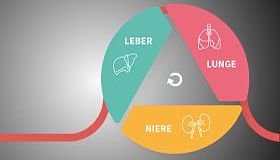
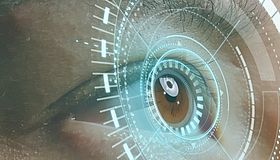

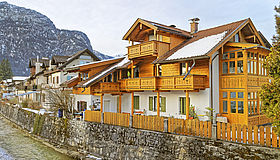
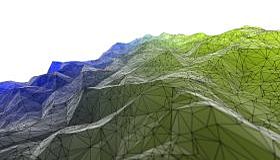



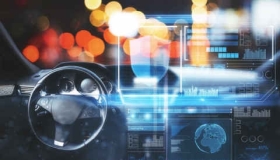
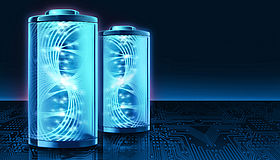

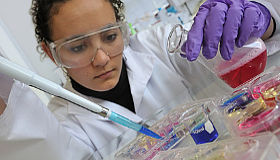
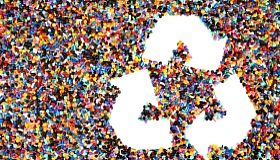
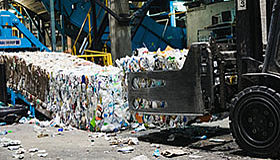
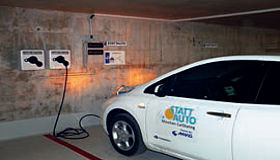

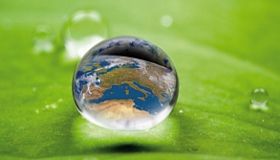
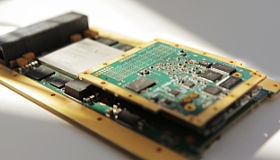

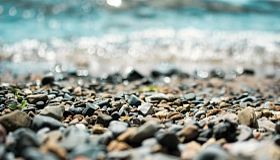
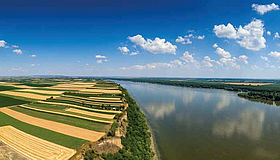
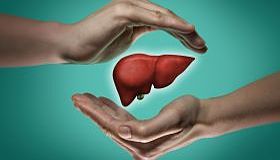

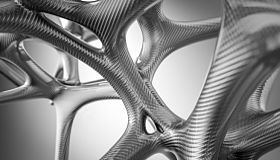
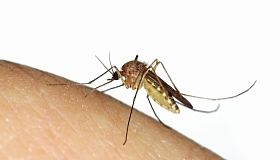
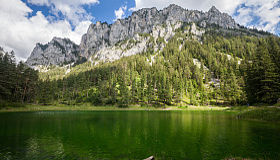
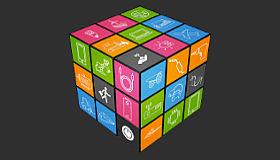

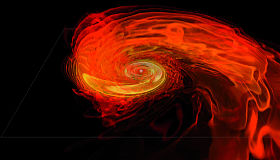

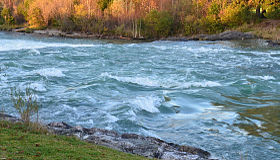
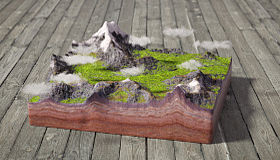

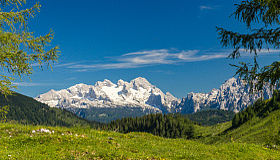
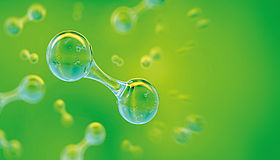
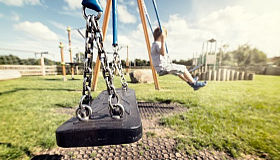
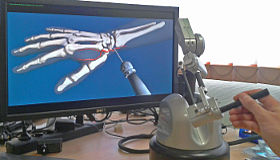


![[Translate to Englisch:] HyFlow](/fileadmin/_processed_/f/6/csm_BayFOR-hyflow-l_92b7334df8.jpg)
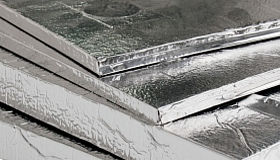
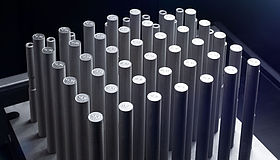
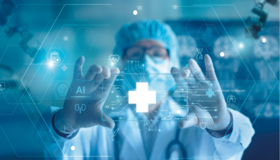
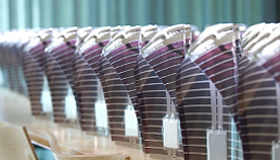
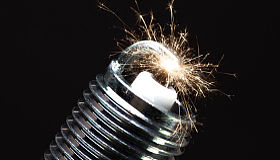
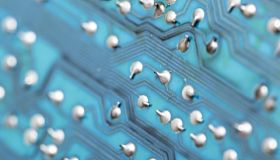
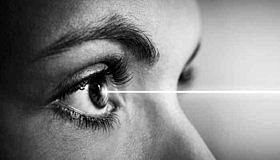

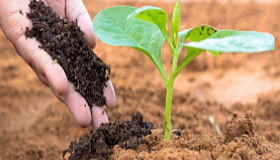
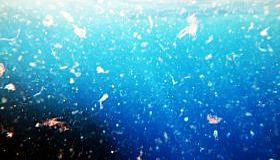
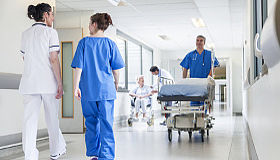
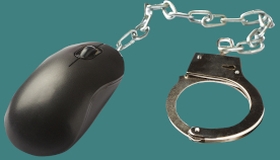
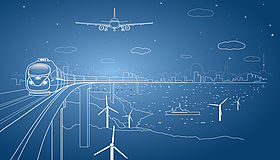
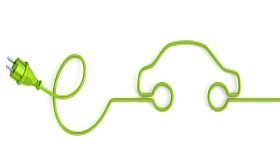

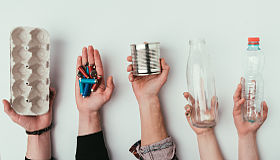
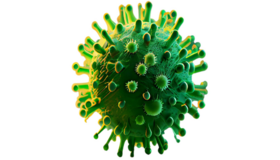

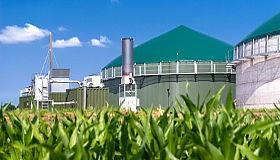



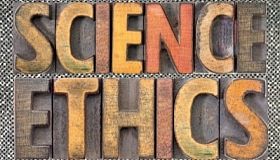
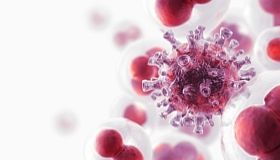
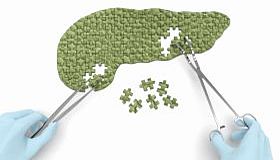


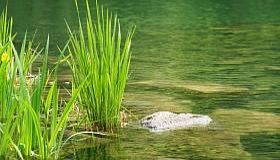

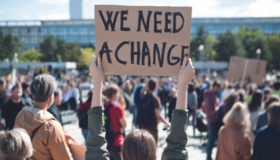
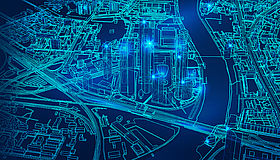
![[Translate to Englisch:] RecyLIB](/fileadmin/_processed_/e/5/csm_BayFOR-recylib-c_46d1e93e1c.png)

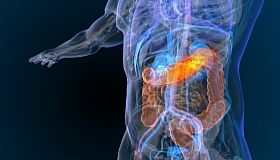


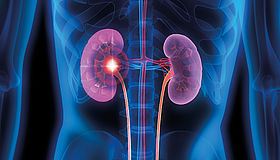
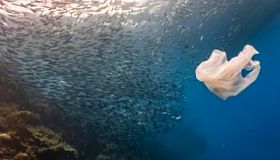
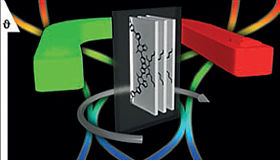

![[Translate to Englisch:] EU-Projekt SMARTER TOGETHER SMARTER TOGETHER](/fileadmin/_processed_/5/d/csm_BayFOR-smartertogether-energie-l_69b967cc0e.jpg)
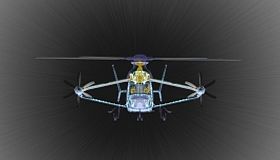
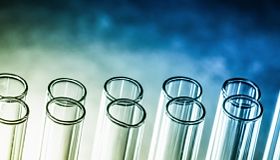

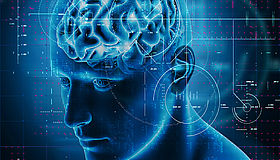

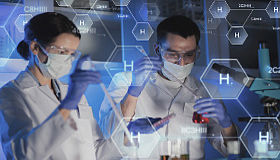
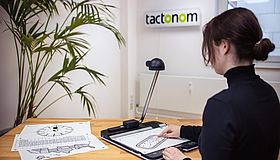

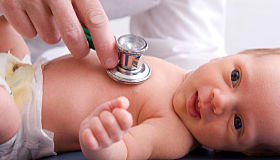
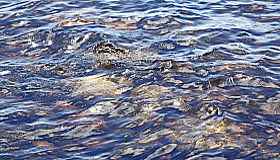
![[Translate to Englisch:] EU-Projekt TrustNode TrustNode](/fileadmin/_processed_/0/5/csm_BayFOR-trustnode-l_3171f6d254.jpg)
